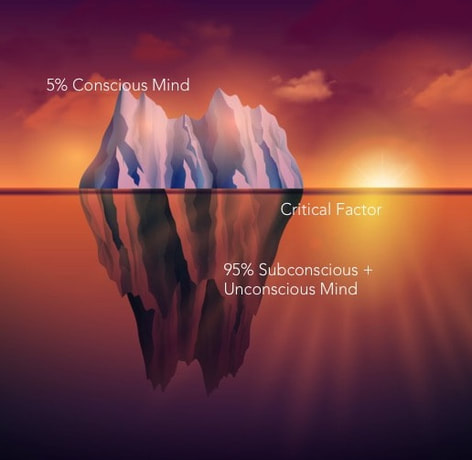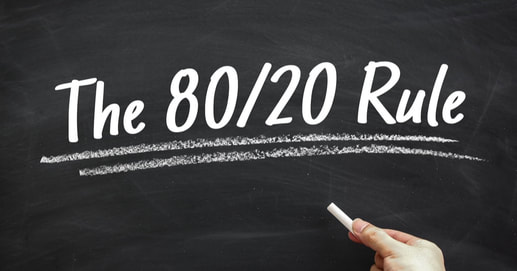“People think hypnosis is about giving up control,” said Dr. David Spiegel of Stanford University. “But it’s actually giving control back to the patients.”
Hypnosis is a natural state of mind that you experience at various times during the day. Have you ever driven from Point A to Point B, and not remembered how you got there? Have you ever been lost in a book or movie, and looked at the clock in disbelief that several hours had passed? Have you ever fallen asleep?... Or woken up? Then you have most definitely experienced hypnosis! All hypnosis is self-hypnosis! Hypnotists simply guide you in the process.
Hypnosis is a heightened state of awareness and focus when you are receptive to new thoughts, ideas and suggestions. These new thoughts, ideas, and suggestions can positively change your feelings, habits, and behaviors.
Hypnosis is a heightened state of awareness and focus when you are receptive to new thoughts, ideas and suggestions. These new thoughts, ideas, and suggestions can positively change your feelings, habits, and behaviors.

Think of your mind like this ice berg. The conscious mind, which you are using right now, makes up only about 5% of your brain's capacity. It is where you hold your 'shoulds,' short-term memory, decision-making processes, affirmations, and willpower. It can handle only a few things at once.
The other 95% of your brain's capacity is made up of two parts: Your unconscious mind (sleep and automatic body functions) and your subconscious mind. This part of your mind can handle thousands of things at once, and mainly behind the scenes.
The subconscious mind is where hypnosis happens. It is home to your values, beliefs, emotions, wants, rules, long-term memory, intuition, life stories... And, most importantly, your IMAGINATION. We use your imagination in hypnotic work.
The Critical Factor, which is formed around the age of 7, blocks rapid communication between the subconscious and conscious mind, to protect us from becoming overloaded. Hypnosis allows us to bypass that Critical Factor, which acts like a gatekeeper. It is through hypnosis that we can truly go deeper and make changes in our powerful subconscious mind, and, therefore, in our everyday lives.
The other 95% of your brain's capacity is made up of two parts: Your unconscious mind (sleep and automatic body functions) and your subconscious mind. This part of your mind can handle thousands of things at once, and mainly behind the scenes.
The subconscious mind is where hypnosis happens. It is home to your values, beliefs, emotions, wants, rules, long-term memory, intuition, life stories... And, most importantly, your IMAGINATION. We use your imagination in hypnotic work.
The Critical Factor, which is formed around the age of 7, blocks rapid communication between the subconscious and conscious mind, to protect us from becoming overloaded. Hypnosis allows us to bypass that Critical Factor, which acts like a gatekeeper. It is through hypnosis that we can truly go deeper and make changes in our powerful subconscious mind, and, therefore, in our everyday lives.
|
Quick Hypnosis Facts
|
Most people spend 80% focusing on their problem and 20% on the solution. In hypnosis, that is reversed. We spend just enough time on the problem so we can focus 80% of our time on the solutions. Remember, whatever you focus on will expand in your life, so you want that to be solutions!
|
THE FOUR STATE OF CONSCIOUSNESS
(that you go through each time you fall asleep or awaken!)
(that you go through each time you fall asleep or awaken!)
BETA
the conscious mind is functioning
the conscious mind is functioning
ALPHA
daydreaming state
daydreaming state
THETA
full access to your imagination allows for change
full access to your imagination allows for change
DELTA
you are sleeping
you are sleeping
HYPNOSIS CASE STUDIES
The internet is filled with case studies and clinical research of how hypnosis has worked for a variety of situations! The Journal of the American Institute of Hypnosis is a good publication for finding research articles. Below are a few links that provide a sampling of case studies and articles that illustrate the effectiveness of hypnosis.
Hypnosis is not intended for use in the diagnosis of disease, medical or psychological conditions, nor is it a cure, mitigation, treatment, or prevention of disease, medical or psychological conditions.
Hypnosis is not intended for use in the diagnosis of disease, medical or psychological conditions, nor is it a cure, mitigation, treatment, or prevention of disease, medical or psychological conditions.

